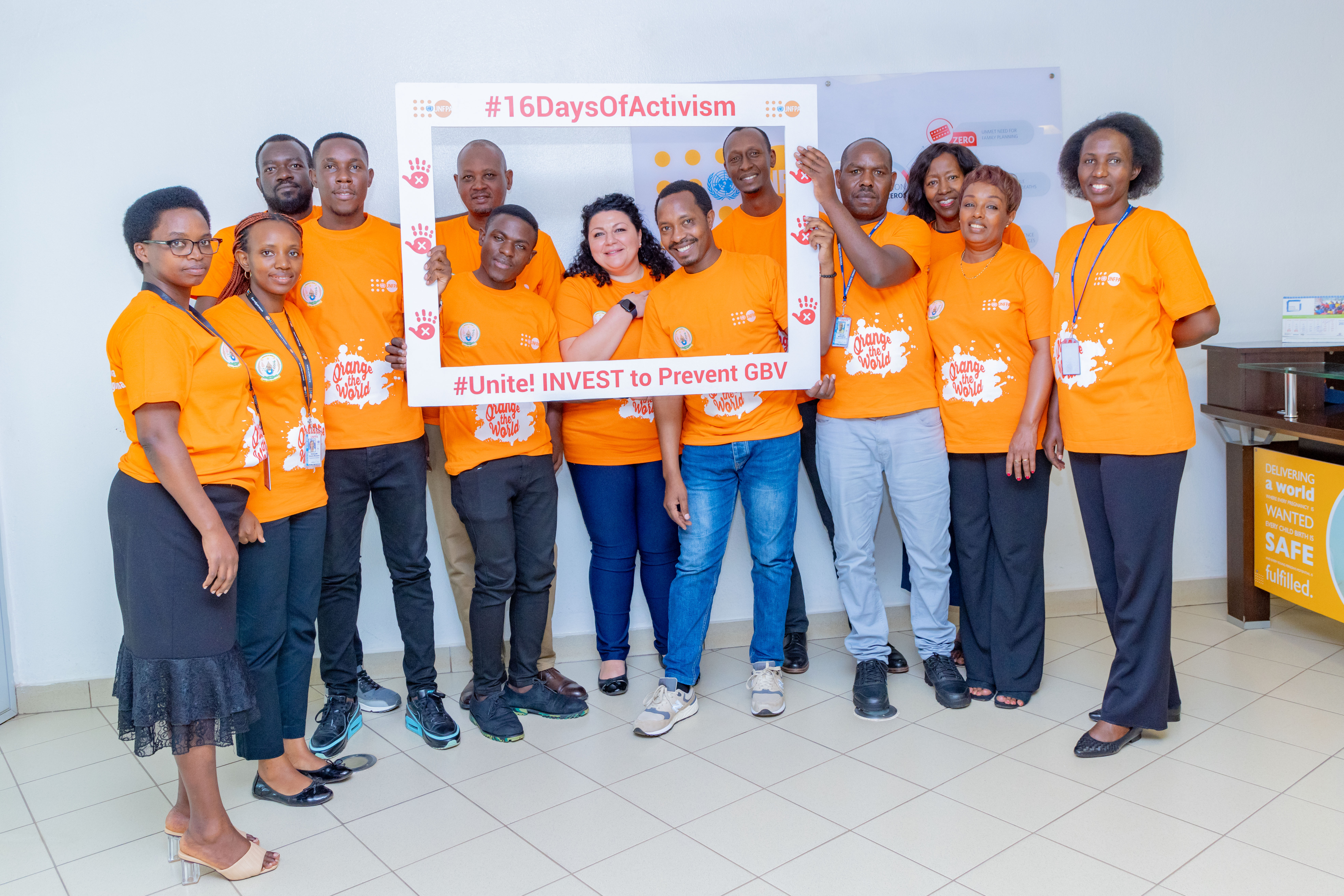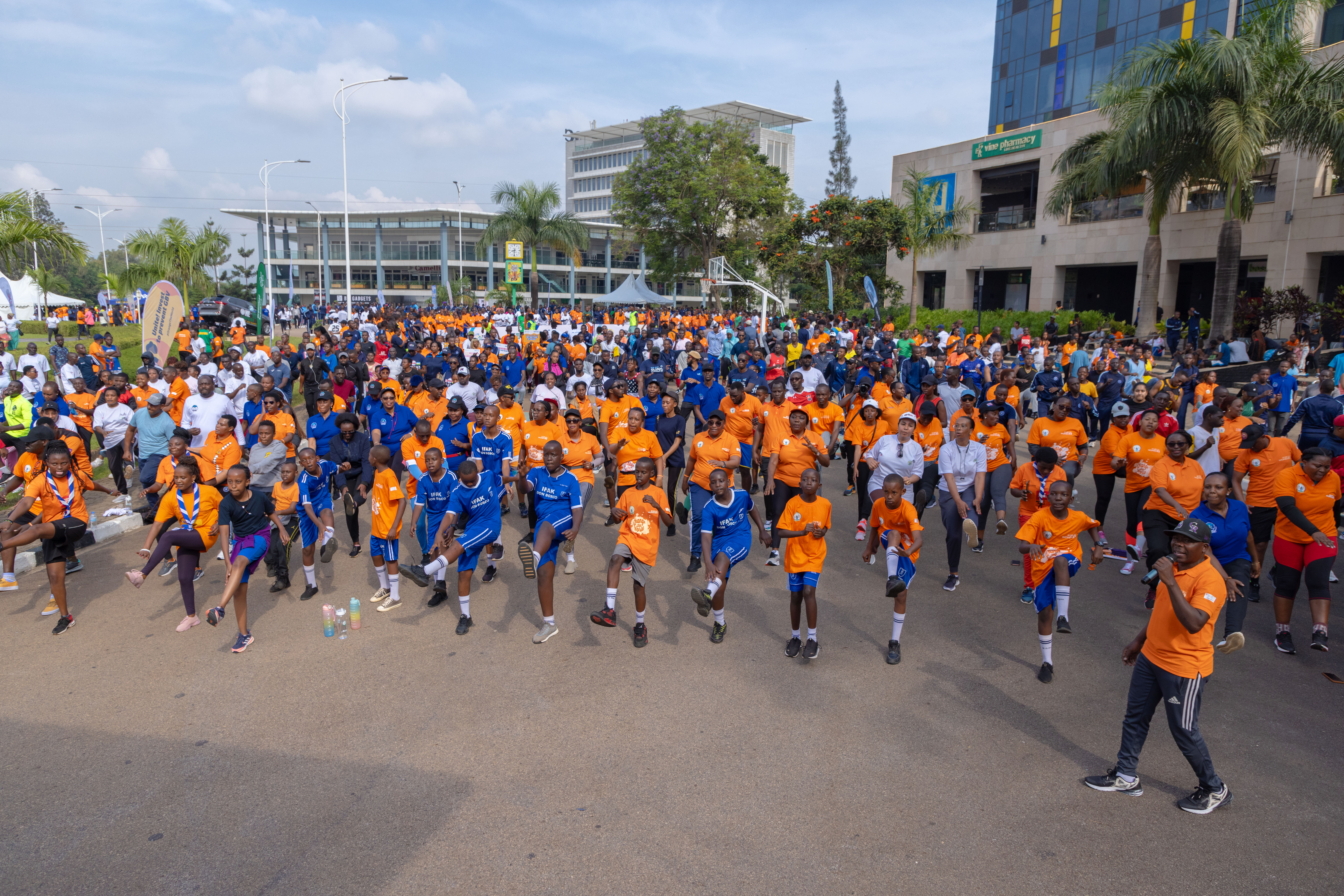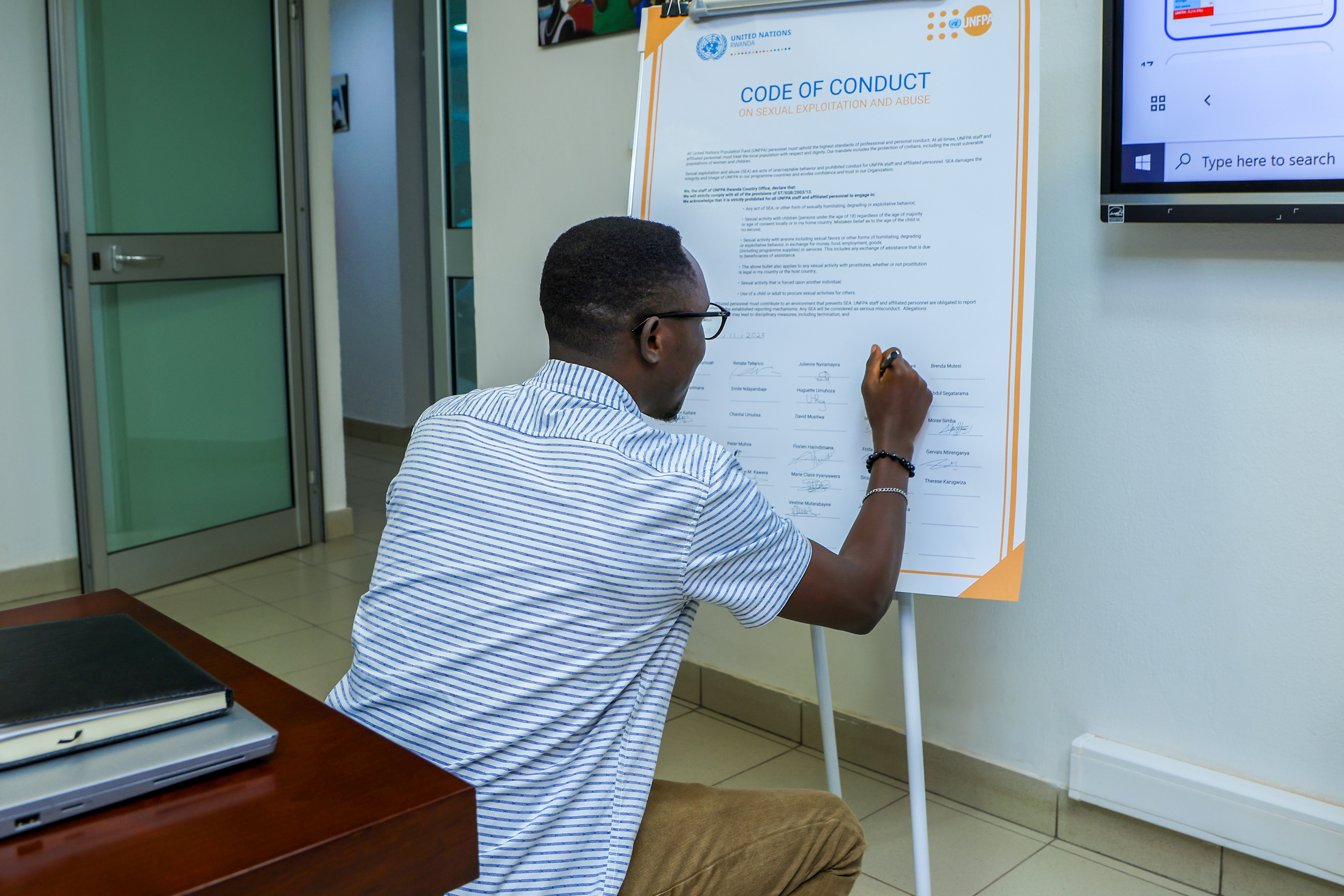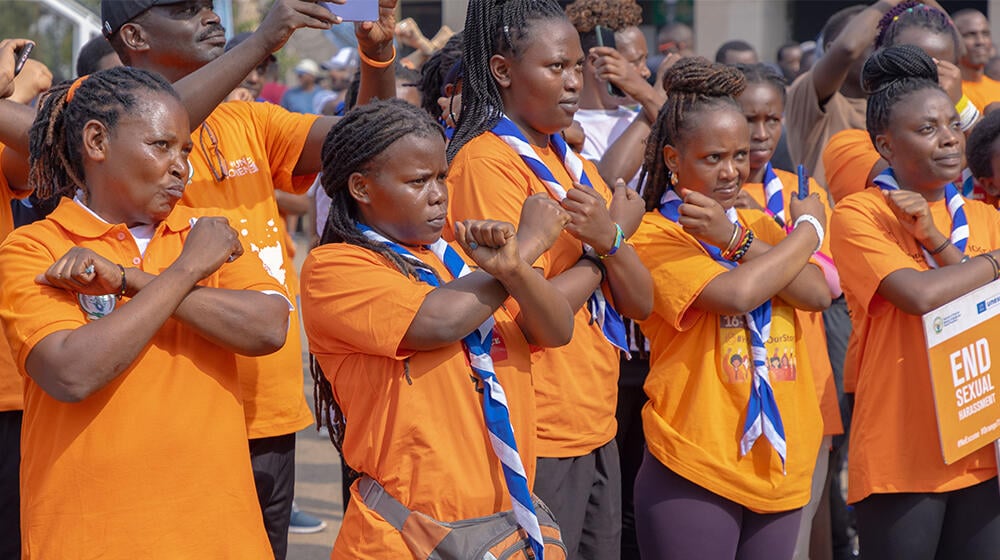From the International Day for the Elimination of Violence Against Women on November 25th to the International Human Rights Day on December 10th, the 16 Days of Activism against Gender-Based Violence (GBV) highlights the urgent need for collective action and emphasises the ongoing struggle to ensure a world free from GBV and in particular all forms of violence against women girls.
Under the 2023 global theme: “Unite! Invest to prevent violence against women & girls” UNFPA Rwanda joined the Government of Rwanda, other UN agencies, the population, and development partners in a series of nationwide activities geared towards raising awareness on the prevention of and response to gender-based violence, including violence against women and girls. Among key activities, UNFPA supported the development and dissemination of messages about the 16 days of Activism campaign and participated in Car-Free Days sporting activities in Kigali City and Nyagatare District as part of the awareness-raising initiatives to prevent violence against women and girls.

Reflecting on the 16 days of activism against GBV and the high prevalence of intimate partner violence in Rwanda, UNFPA Rwanda’s Deputy Representative, Dr. Renata Tallarico emphasized that getting to zero GBV and harmful practices requires the deployment of a mix of approaches.
We must tap into the high mobile penetration in Rwanda and promote the development of home-grown innovative solutions to address the GBV scourge including the emerging issue of technology-facilitated GBV" said Dr. Renata Tallarico

At the national level, the launch of the 16 Days of Activism against GBV in Bugesera District encompassed several activities including tree planting as part of the Ministry of Health's 'Green Hospitals' initiative, road rehabilitation near Ntarama Health Centre, and addresses delivered by key speakers from the Ministry of Health, the Ministry of Gender and Family Promotion as well as the UN Resident Coordinator, all advocating for concerted efforts and investments in GBV prevention and response.
During the 16-day campaign, UNCT Rwanda launched an inter-agency campaign on PSEA to reaffirm its commitment to implementing the Zero Tolerance Policy on the Protection from Sexual Exploitation and Abuse (PSEA) within the UN and its partners. “This campaign is a reminder that we, the international civil servants of the United Nations must lead by example, we must serve our beneficiaries with honour, pride, and integrity,” Dr. Renata Tallarico, UNFPA Deputy Representative, and OIC addressing the audience during the launch of the PSEA campaign.
The campaign focused on rolling out the “PSEA at the Frontline” initiative. The initiative targeted frontline workers who play key roles in assistance programs and interact with beneficiaries and community populations daily, including drivers, security guards, enumerators, translators, aid distributors, financial service providers, and other contractors. Operating under the tagline “Together We Say No,” the initiative aims to help them identify and report sexual exploitation and abuse (SEA) while also becoming strategic allies in its prevention. Frontline workers and partners gained crucial knowledge on protection from sexual exploitation and abuse (PSEA) through a dedicated package of simplified communication materials in highly illustrated print, audio, and multimedia formats.
On a similar note, UNFPA disseminated the findings of the PSEA global survey, which enabled the country office team to appreciate areas of strengths and areas requiring improvement. During the event, the country office team solemnly committed to abide by the UNSG Bulletin ST/SGB/2003/13 on PSEA by signing a Code of Conduct.

Gender-based violence is one of the most prevalent human rights violations in the world. It knows no social, economic, or national boundaries. It undermines the health, dignity, security, and autonomy of survivors. And it remains shrouded in a culture of silence, supported by cultural beliefs and values that sustain, justify, or dismiss it as an ordinary component of male-female relationships.
UNFPA as a lead agency in responding to and reducing gender-based violence, supports programmes in more than 150 countries and territories in humanitarian, peace, and development settings. Details of UNFPA’s gender-based violence programmes, including prevalence and programming data, country profiles, and human-interest stories, can be found in this dashboard.


